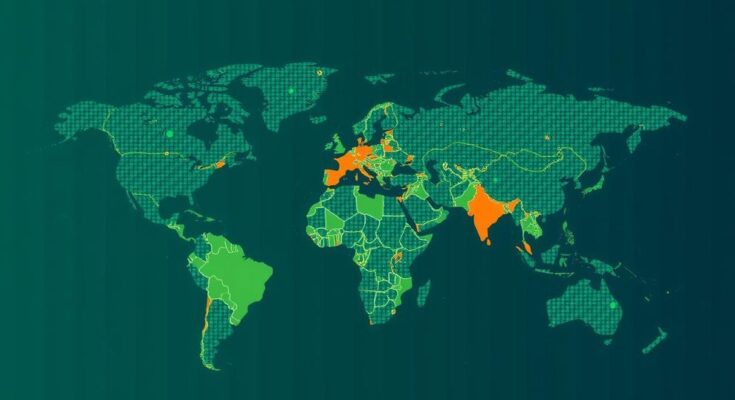World leaders at COP 29 in Baku are expected to conclude discussions on climate finance, with a UN document indicating a target in the trillions of dollars. This move addresses previous inadequacies in financial commitments, reflecting growing urgency in climate action. Key decisions include establishing minimum allocations for Least Developed and Small Island Developing Countries and inviting voluntary contributions from developing nations, while also exploring funding sources from the private sector.
World leaders are convening in Baku, Azerbaijan, for COP 29 to discuss pivotal climate change issues as the conference approaches its conclusion. A UN document released today indicates significant progress in climate finance negotiations, with a proposed figure in the trillions, addressing concerns from experts who advocate for a more substantial financial commitment to combat climate change. Following consensus from 12 technical consultations and three ministerial meetings, delegates are expected to finalize a new collective quantified goal (NCQG) for climate finance before COP 29 ends.
The draft text signifies a departure from earlier proposed amounts in billions, instead hinting at a target of at least five trillion dollars needed to meet the urgent requirements outlined in national commitments by various countries. Many developing nations have expressed dissatisfaction with any figure falling below this threshold. Illiari Aragon, a specialist in UN Climate Negotiations, emphasized that proposals for a figure in the billions would not suffice and would leave many developing countries feeling underserved.
Another point of discussion is the contributor base for the financial goal. Some developed nations suggested including emerging economies such as China and India as potential contributors, a proposition that has been met with strong resistance from several quarters. The latest draft reflects a flexible approach, inviting voluntary contributions from developing nations without mandating participation in the NCQG.
Significantly, the document establishes minimum allocation floors of at least USD 220 billion for the Least Developed Countries and USD 39 billion for Small Island Developing Countries, acknowledging their heightened vulnerability to climate impacts. This decision marks a substantial commitment towards addressing the disproportionate effects of climate change on the most susceptible nations.
Finally, the classification of finance types has been a recurring theme, with negotiations suggesting the inclusion of private sector funding. However, skepticism persists regarding the obligation of private entities to contribute, alongside ongoing discussions on the balance between grants and loans. The finalized document reinforces the need for contributions from diverse sources, including public and private sectors, while also committing to provide adequate grants to lessen the financial burden on developing nations.
In conclusion, the ongoing COP 29 discussions in Baku are set to culminate in decisions that could lead to significant advancements in climate finance. The proactive movements towards establishing a substantial financial goal and defining contributor responsibilities are reassuring steps towards a more unified global response to climate change.
COP 29, hosted in Baku, Azerbaijan, serves as a critical platform for world leaders to confront the challenges of climate change. This year, the focus has notably shifted to mobilizing financial resources, essential for implementing climate initiatives, particularly for developing countries. The historical context includes previous commitments made during COP negotiations, emphasizing the need for a collective goal that reflects the urgency of climate action and addresses the financial inadequacies experienced in past agreements.
The recent developments at COP 29 indicate a promising shift toward substantial commitments in climate finance, aiming for a target in the trillions. Establishing minimum financial allocations and the involvement of diverse funding sources are pivotal for vulnerable nations. Moving forward, these decisions may not only advance immediate climate action but also restore trust in multilateral negotiations, emphasizing a collective responsibility towards mitigating global warming.
Original Source: www.forbes.com




